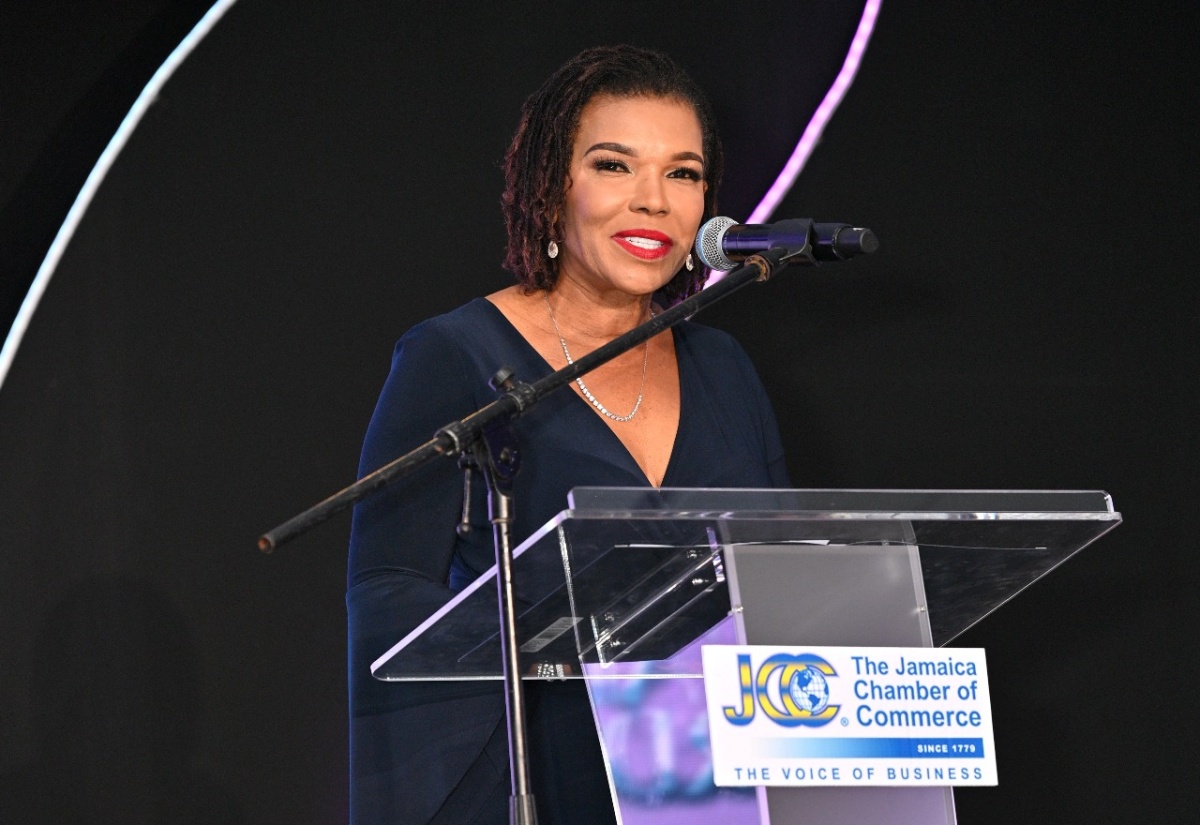Businessuite Women
The Power Of Your Social Imprint – The Nipsey Hussle Model

Businessuite Women
Data Mavericks of the Caribbean: Raquel Seville & Dataffluent’s Visionary Rise
Businessuite News24
Private Sector Urged to Champion Productivity
“Equity means ensuring access to financing, financial inclusion, fair treatment under regulation, and a level playing field for all, including women, youth, and marginalised communities,” she said.
Businessuite Women
Dorothea Gordon-Smith Marks 50 Years of Quiet Power in Waste Management
Gordon-Smith has never been one to seek the spotlight. Her legacy is not one of noise or flash—but of consistency, care, and conviction. In an industry that rarely sees women at the top, she not only rose—she transformed what leadership looks like.
Businessuite Women
Who is Safia Cooper?: Steering Pulse Investments into a New Era
Businessuite Women
Corporate Movements: Margaret Campbell Appointed CEO of GKMS Group; Lee-Anne Bruce Named COO
-

 Businessuite Women3 weeks ago
Businessuite Women3 weeks agoData Mavericks of the Caribbean: Raquel Seville & Dataffluent’s Visionary Rise
-

 Businessuite News241 week ago
Businessuite News241 week agoJamaica Records US$2.4B in Earnings From 2.3 Million Visitor Arrivals Since Start of 2025
-

 Businessuite News243 weeks ago
Businessuite News243 weeks agoBusinessuite Special Report P4 | Homegrown Disruption: InterMetroONE & Walkbout.com Position Jamaica’s Answer to Uber–Airbnb
-

 Business Insights3 weeks ago
Business Insights3 weeks agoBusinessuite Cover Story: Too Much Power? Governance Risks Rise as Tyrone Wilson Consolidates Leadership at Kintyre and Visual Vibe
-

 Business Insights3 weeks ago
Business Insights3 weeks agoBusinessuite Special Report P1 | When Titans Unite: How an Uber–Airbnb Alliance Could Redefine Travel in Jamaica and Beyond
-

 Businessuite News243 weeks ago
Businessuite News243 weeks agoBusinessuite Special Report P3 | Uber x Airbnb: A Strategic Alliance That Could Redefine Jamaica’s Travel Industry – But At What Cost?
-

 Entrepreneurship4 weeks ago
Entrepreneurship4 weeks agoBuilding a Business While Working a 9–5: The Real Hustle Behind the Dream
-

 Businessuite Markets3 weeks ago
Businessuite Markets3 weeks agoBusinessuite Cover Story: Wigton’s Bold Bet – Could Tropical Battery Be the Key to Its Caribbean Clean Energy Empire?



 In early 2024, Jamaican technologist Raquel Seville founded Dataffluent Limited to address a critical void: Caribbean markets lacked reliable, structured financial data. The startup’s mission is audacious yet essential—to “democratise data for underserved markets,” empowering investors, analysts, and companies to navigate with clarity in regions traditionally seen as opaque .
In early 2024, Jamaican technologist Raquel Seville founded Dataffluent Limited to address a critical void: Caribbean markets lacked reliable, structured financial data. The startup’s mission is audacious yet essential—to “democratise data for underserved markets,” empowering investors, analysts, and companies to navigate with clarity in regions traditionally seen as opaque .


 Safia’s journey with Pulse began in earnest in 2012 when she joined as Director of Sales and Marketing. Her prior experience included managerial roles at Red Stripe Jamaica and Diageo Brazil, where she honed her skills in brand management and strategic marketing. She holds a BSc in International Relations from the University of the West Indies and an MBA from Nova Southeastern University.
Safia’s journey with Pulse began in earnest in 2012 when she joined as Director of Sales and Marketing. Her prior experience included managerial roles at Red Stripe Jamaica and Diageo Brazil, where she honed her skills in brand management and strategic marketing. She holds a BSc in International Relations from the University of the West Indies and an MBA from Nova Southeastern University.






